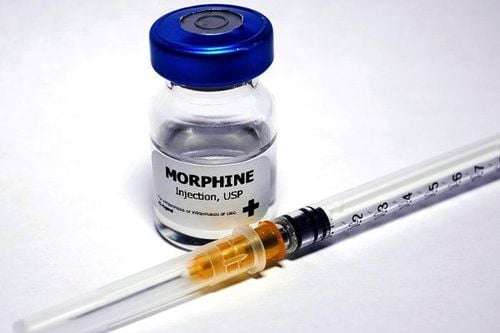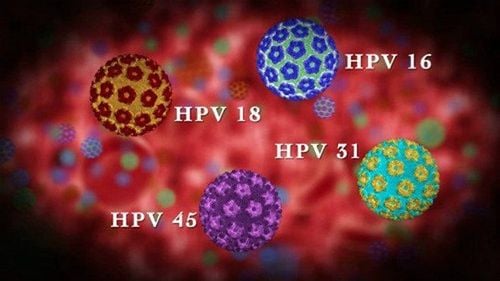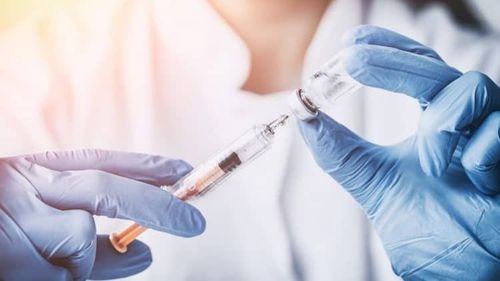This is an automatically translated article.
Penile cancer is a rare disease in men, the consequences that this disease leaves are extremely serious. The majority of cases of penile cancer are surgically removed, posing a threat to a man's fertility and quality of life. Therefore, it is very important to know the factors to prevent the disease.
1. What is penile cancer?
Cancer is the most obsessive disease for doctors, specialists and especially patients. There are many types of cancer, of which penile cancer is a rare disease in men, but the consequences that this disease leaves are extremely serious. Penile cancer is a squamous cell carcinoma that develops from the skin of the glans or the face inside the foreskin. Thereafter, lymphatic metastasis to the inguinal and retroscrotal lymph nodes; The lymph nodes are often enlarged, tender and painful at first, then enlarged and hard. The vast majority of penile cancer cases require amputation, with dire consequences for men's fertility and quality of life.
Penile cancer is classified into:
Squamous cell carcinoma: accounts for 95% of cases. Other penile cancers include melanoma, basal cell carcinoma, lymphoma, and sarcoma.

Ung thư dương vật là căn bệnh hiếm gặp ở nam giới, nhưng những hậu quả mà căn bệnh này để lại vô cùng nghiêm trọng
2. Risk factors for penile cancer
Risk factors for penile cancer include:
Uncircumcised stenosis: Narrowing of the foreskin increases the risk of invasive penile cancer many times more than cancer. penis in place. HPV infection: HPV is the main virus that causes warts, dangerous genital diseases such as cervical cancer in women and penile cancer in men. Unhealthy sex: Having unprotected sex with multiple partners can expose you to bacteria, viruses, fungi that cause sexual diseases such as HIV, syphilis, and penile cancer. (if infected with HPV) and other cancers in men and women. Poor genital hygiene: Poor genital hygiene can be a risk factor for penile cancer, because harmful bacteria and fungi grow causing inflammation of the penis, causing damage to the penis. damage the skin. Long-term untreated or not properly treated can lead to penile cancer. Exposure to UV rays: UV rays can cause changes and dysfunction of cells leading to tumor formation. Regular exposure to UV rays, or having used radiation therapy to treat cancer, may be a risk factor for penile cancer. Age: The older a man is, the higher the risk of penile cancer. The disease is usually found in men over 60 years of age. History of malignant lesions: Bowen's disease, leukoplakia, Paget's disease or Buschke-Lowenstein disease...

Nam giới tuổi càng lớn thì nguy cơ mắc ung thư dương vật càng cao
3. Signs and symptoms of penile cancer
Warning signs and symptoms of penile cancer include:
In people with narrowing of the foreskin: genital warts, itchy rash, bad-smelling discharge from the foreskin, swelling of the penis, lesions Palpable lesions, changes in thickness and color on the skin of the penis, the appearance of lumps on the penis or small bumps under the skin in the groin area. In elderly patients: If there are symptoms similar to foreskin stenosis as above but do not examine it, it will cause deep invasive tumors or ulcers, clustering into clusters. In addition, inappropriate treatment will cause toxic boils and metastases. In men without a foreskin: Bleeding occurs, usually when the penis is erect in the morning or during sexual intercourse. Clinically, malignant penile cancer due to invasion of the urethra is rare in men. Tumors arise along the length of the urethra causing obstruction and hematuria, dysuria, urine leakage... Some other clinical symptoms include: ulceration or necrosis in the penis, lesions penis, enlarged lymph nodes; Enlarged liver... However, the case you experience the above symptoms does not necessarily mean that you have cancer, but this could be a sign of an inflammatory disease or an allergic reaction, but not because of that. subjective. Therefore, if you detect any abnormal signs on or near the penis, you need to go for a checkup immediately to know the exact problem and be treated as soon as possible, avoiding complications to positive cancer. object.
4. Methods used to diagnose and treat penile cancer
4.1. Diagnosing penile cancer
The diagnosis of penile cancer includes:
Taking a biopsy sample from cells in the penis or other areas for examination: The doctor will insert a thin needle into the nearby white blood cells affected areas to aspirate to check if this tumor contains cancer cells Imaging tests: X-ray, CT scan, ultrasound, magnetic resonance imaging can help doctors observe Monitor for tumors or abnormalities suggesting metastasis of lateral cancer, and screen for hepatomegaly or prostate cancer. 4.2. Treatments for penile cancer
If cancer is found in its early stages, treatment may include:
Penile medications Using a laser to cut and destroy areas containing cancer cells Surgery Circumcision in stenosis. Using a very low temperature liquid or a freezing device to destroy cancer cells Mohs surgery: Removing the affected areas of skin layer by layer until it reaches a layer of normal and healthy cells If you find cancer in the later stages, treatment will likely use the above measures, in combination with the following:
Surgery to remove lymph nodes if cancer that has spread Radiation therapy or chemotherapy to remove cancer cells Surgery to remove part or all of the penis.

Ung thư dương vật ác tính do xâm lấn niệu đạo hiếm gặp ở nam giới
Early cancer screening is considered a perfect measure in the timely detection and treatment of all types of cancer. Reduce the cost of treatment and especially reduce the mortality rate in patients. Vinmec International General Hospital always deploys and introduces to customers Early cancer screening at Vinmec - Peace of mind to live well to help with gene testing, imaging diagnostics, testing of biological markers to detect tumors Soon. Vinmec International General Hospital has many packages of early cancer screening.
Only one gene test can assess the risk of 16 common cancers in both men and women (lung cancer, colorectal cancer, breast cancer, pancreatic cancer, neck cancer) uterus, stomach cancer, prostate cancer,....) Early detection of early signs of cancer through imaging, endoscopy and ultrasound. The operation is simple, careful and accurate. A team of well-trained specialists, especially in oncology, are capable of handling cancer cases. With facilities, advanced and modern medical equipment and a team of doctors with deep expertise and experience. At Vinmec, the examination process becomes fast with accurate results, saving costs and time for patients.
Please dial HOTLINE for more information or register for an appointment HERE. Download MyVinmec app to make appointments faster and to manage your bookings easily.
SEE MORE
Common diseases of the penis Male pathology and related problems: Decline in testosterone levels in men Beware of pimples on the penis













